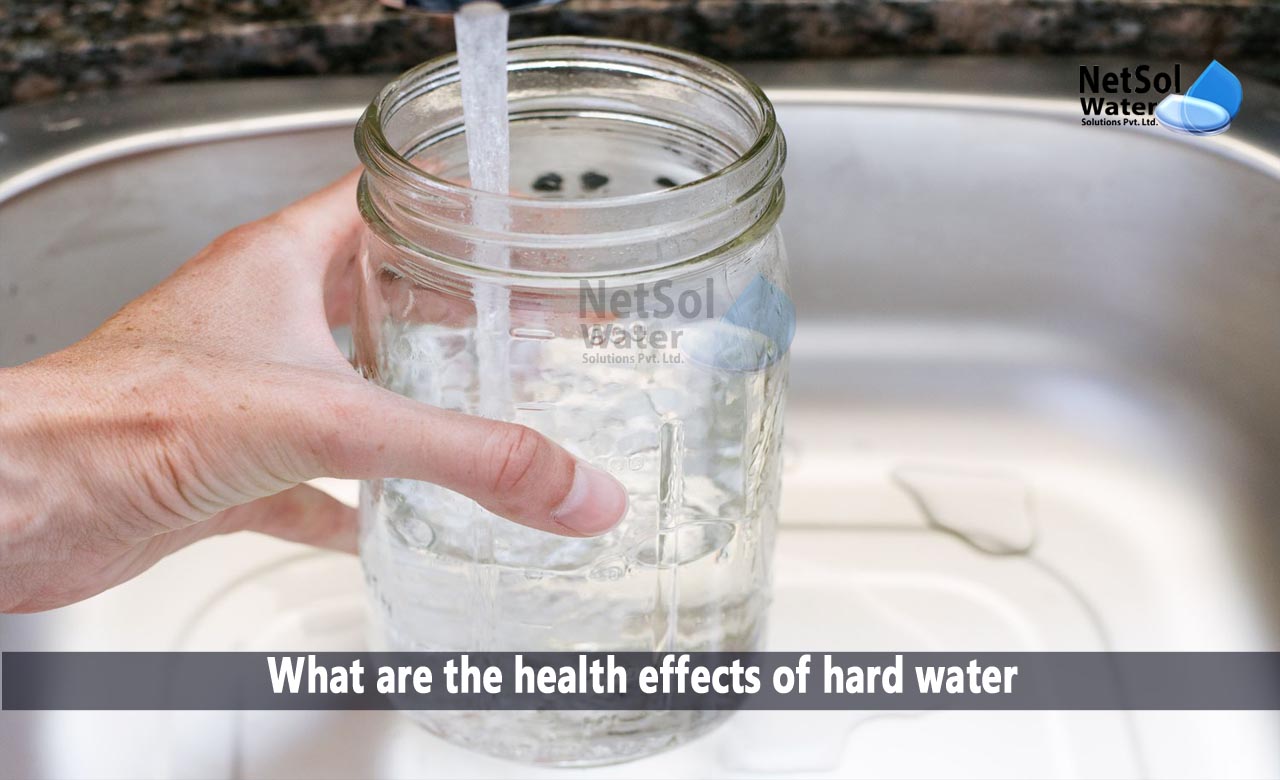There are a lot of dissolved minerals in hard water. These minerals can sometimes be visible as hard water stains, which appear when water evaporates and deposits minerals on the surface. Let’s look at how hard water is treated!
What are the health effects of hard water?
There is a widespread misperception that drinking hard water is unhealthy. That is not the case, though. Hard water is safe to drink. In reality, the water's minerals boost your daily intake of the essential minerals, which in turn shields you from a variety of ailments. However, while hard water is beneficial to your body, it may not always be beneficial to your household's utensils, electrical appliances, pipes, and other items.
Even though, drinking a lot of hard water is beneficial for your health, it might cause problems over time. Not all people can safely consume the minerals found in the water. As a result, there are no significant negative consequences of hard water on health; however, sore throats and constipation are prevalent. To solve these issues, utilize a water softener for hard water and engage in frequent exercise.
Other hard water issues include:
· Glassware, dishes, and sinks may all have white residue left over from the water.
· A build-up inside pipes could be caused by the same residue.
· Other issues can include an increase in corrosion and a decrease in the cleaning products' efficacy.
· Your plumbing system and water heater may use up a lot more energy, as a result of the above build-up in the pipe.
· Higher electricity bills will eventually result from this excessive energy use.
How should we handle these hard water effects? What are the four easy fixes to handle hard water?
Hard water solutions are easily treated at home. Here are some suggestions on how to counteract the negative effects of hard water, from vinegar to water purification systems.
1. Geyser or water heater
Mineral sediment accumulates in great quantities at the bottom of water heater and geyser tanks. To lessen the quantity of debris that is present at the bottom of the tank, keep flushing your water heater. Make sure to purchase a geyser for hard water that is energy efficient. The greatest water heater for hard water may still cost a lot of money if you don't.
2. Vinegar
Since, hard water contains a significant amount of calcium, vinegar works well. Acetic acid reacts with minerals above hydrogen. The calcium, magnesium, and other mineral deposits in hard water can be easily removed with vinegar.
It also eliminates bacteria, mould, and other pathogens, which is an added benefit. A quick fix for treating hard water at home is to use vinegar as a softener.
3. Soap
To reduce hard water deposits, wash your glasses and dishes. Add a solution of one part apple cider to three parts purified water to get rid of soap scum.
4. Use of a water softener
The best way to handle hard water at home or industries is with a water purification system. The RO plant + water softener eliminates all the bacteria and dissolves all the minerals in hard water. While, purifying hard water for drinking, RO Plant makes sure that all undesired minerals like zinc and lead are filtered.
Reduce the negative impacts of hard water and maintain the safety of your appliances, by using the aforementioned remedies for hard water.
Conclusion
While, each of these purifying techniques is effective on its own, they function best when used together. With Netsol Water Commercial RO Plants and water softeners, we combine all of these technologies to give you pure water, to protect your health and the health of your family. For further information or to make a product purchase, contact us at +91-9650608473 or drop a mail at enquiry@netsolwater.com



